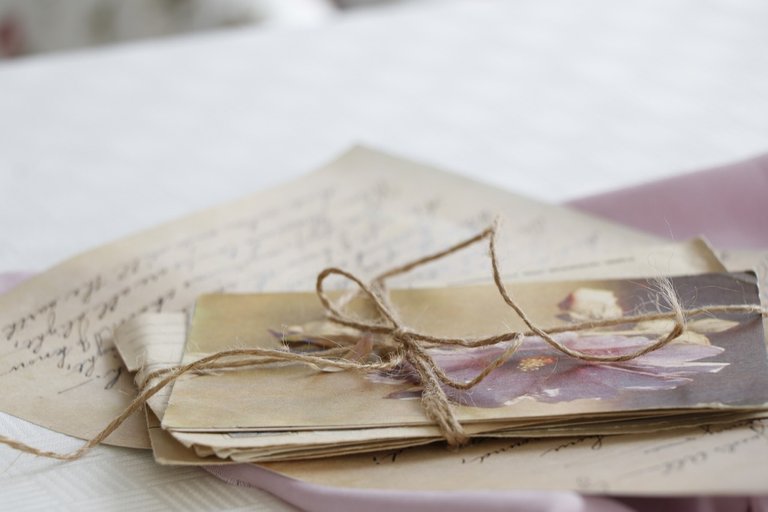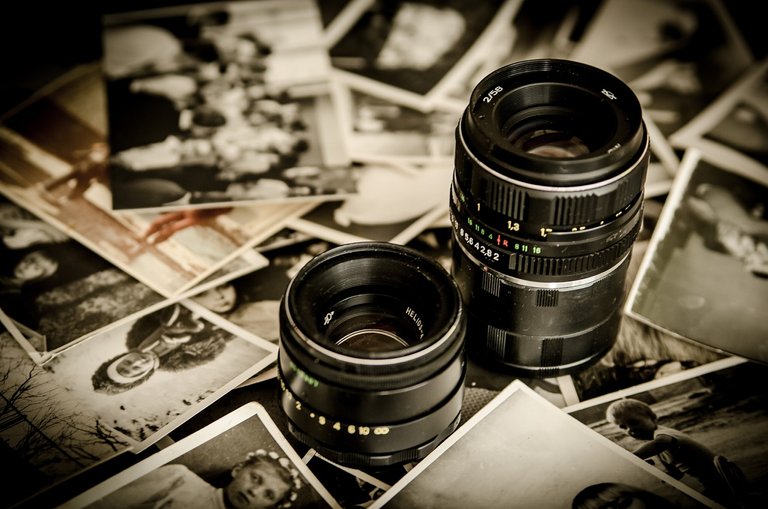A scientific look at nostalgia
I have experienced nostalgia on multiple occasions.
I am not sure why some people see nostalgia as a shame. You see for me, it's like transiting on a journey through time - one that brings back vivid memories of my youth and gives me a kind of pausing moment to reflect on everything that has come before.
Now what the heck Is Nostalgia and How Does and to what extent can we be Affected?
Nostalgia is one of those mysterious but universally-felt emotions, like hunger or joy. We might not know the science behind it, but we all recognize the sweet twinge that comes with remembering something from our shared past. When nostalgia hits us, we're almost transported back in time to relive a moment, as if by simply recalling it we can reclaim whatever is lost.
So what is nostalgia anyway? In a nutshell, it's when our happy memories come to visit us and they don't always come alone!
Now imagine a situation whereby one of those long old friends shows up unexpectedly on your doorstep you smile, laugh, reminisce and you feel both comforted and sentimental at the same time. The science is pretty cool too: when nostalgic feelings arise and our brain rewards us with euphoria, producing dopamine, the parts of us that store emotional memory are activated, allowing us to relive details of our past experiences in vivid detail.
You see we don't need a degree in neuroscience to know that nostalgia is powerful – anyone who's ever had a strong reaction to a song they used to love can tell you that! And while it may bring back bittersweet feelings from time to time, feeling nostalgic can also give us strength and emotional resilience for tackling whatever life throws at us next.
Exploring the History and Evolution of Nostalgia
Ah, Nostalgia that age-old emotion that lets us reflect on days gone by with a sense of warmth and wonder. It's an emotion that has no particular relevance to my current age, yet the feeling is so strong it almost feels tangible.
Tracing the history of Nostalgia is quite interesting. It first made its appearance in the literary circles in the 1700s when Swiss Physician Johannes Hofer coined the term to describe homesickness in soldiers. But fast forward a couple of centuries and here we are, still talking about the same emotion–nostalgia.
The truth is science seems to suggest nostalgia plays an important role in our memories – it’s even said that nostalgia sharpens our memory and allows us access to distant memories, even those we've long forgotten! I guess that explains why I can still remember almost every detail from my primary school days so vividly, even if it feels like a lifetime ago.
So what does all this mean? It means nostalgia isn't just some fleeting feeling we experience from time to time –it's an emotion deeply rooted within our psyche and something from which we can learn and grow from!
How Memory Works in Relation to Nostalgia
It is almost impossible to not admit the power of nostalgia, it engulfs you from every fiber of your being.
As soon as I come across an old photo or stumble upon a classic song I used to really listen to as a teen, my brain is suddenly filled with vivid memories of my past.
But lets see how that works, exactly.
You see it all starts with the formation and storage of memories, a process that occurs in two parts as one, we call it: encoding and retrieval of information, pieces of information that are in form of memories.
Encoding Memories
Memories are encoded as we take in information through our senses, sight, smell, hearing, taste and touch, which is then, in a manner of speaking, transmitted down neural pathways to an area of the brain called the hippocampus. . This is where information is recorded and stored as long-term memory.
Retrieving Memories
Retrieving memories is essentially accessing the information stored in the hippocampus. Every time we think back on an experience from our past or recall a happy moment with loved ones, it's thanks to our brains ability to retrieve these memories. This can be triggered by certain sights or sounds associated with that time period—like nostalgia! Now you know why those old photos have such an evocative effect on me (and probably you too!).
How Nostalgia Is Shaped by Our Personal Experiences

My own experiences with nostalgia have always been shaped by the little moments that have stood out to me. Whether it's delicious smells from Sunday dinners, or silly catchphrases from my favorite movies, or the sound of my mom's laughter after a particularly bad joke. These little moments are what make nostalgia so special.
It turns out that these personal experiences form the backbone of our nostalgic memories. In fact, our brains are designed to make us remember these special moments over everything else. For example, research has shown that when we remember events and experiences, the parts people often forget first are just those mundane things like weather details and times. What our brains store more vividly instead is emotion—the significance of a moment—which remains intact in our memories even when all other details start to fade away.
No matter how long ago they happened, I'm still able to conjure up powerful feelings from some of my biggest life events. That because nostalgia works by connecting and sometimes reconnecting us back to our past and allowing us to re-live those same emotions and feelings over and over again. For me, it's it no different from a self-initiated or auto-initiated time-traveling experience, the flashing of memories; I can go back as far as I need and as much as i want in order to find comfort in the good oldd days.
The Power of Smells and Sounds on Our Memories
You see whenever I think back to vivid memories in my childhood, both the good and the bad , it's almost as if I am in a state of transit, being transported to another time. I remember vivid details, the way the grass felt under my feet, the smell of freshly cut oranges, the taste of a favorite snack. But how can my brain pull up such very specific memories?
The answer lies in science. It turns out that smells and sounds play a powerful role in how our brains recall memories. When faced with certain smells and sounds, our brains instantly recognize them and pull up memories associated with these sensations automatically.
But nostalgia isn't just about feeling or visualization; it could be triggered by something as simple as encountering a certain noise or scent that takes you back to the happiest moments of your life.
Understanding How Nostalgia Can Be a Strength or a Weakness
You see, I as a person, I get an overflow of nostalgia, like a lot, I've got to learn to use the two sides of a double edge sword for the right purpose and at the right time.
On one side of the coin, nostalgia can be incredible, allowing for reflection on my past experiences and how far I've come as an individual. But on the other side of the coin, it can be a debilitating weakness, making me feel stuck in a longing for days gone by and preventing me from fully appreciating new possibilities and opportunities.
So what is it that makes nostalgia so potent? Scientists have so far been able to identify three key components that contribute to its effect which I believe there is more:
Evocation — Memories of people or events that stir up intense emotions
Reflection — Using those memories as a lens to reflect on our identity
Meaning — Assigning significance and purpose to our memories in order to make sense of life's journey
Of course, as with anything else, nostalgia should be experienced in moderation. After all, knowing how to accept and at the same time let go off the past experiences is just as important as understandiing its meaning. But if certainly done right, you see there's no denying that nostalgia can as a matter of fact give us an invaluable insight into who and what we are, what you dealing with, and who and what we want to be.
Yeah!!! in the end, nostalgia is both a blessing and a curse. On one hand, it allows us to savor and savor the good, wonderful memories of the past, whether it be from our own experiences or from literature and TV shows, especially from childhood that help us to explore life through the lens of someone else’s story.
So next time you feel somewhat like oh my Gosh!!! , I know that feeling, it could be through your skin, eye, ears, nose, and even your tongue. The undiluted feeling of I've felt it before. its nostalgia
Remember, the past is gone, but you can always come back to it, just like a warm and cozy blanket on a cold winter’s day.
Thanks for taking time to read this long, Sayonara 🖐️
Reference
[1]
https://www.google.com/amp/s/www.inverse.com/mind-body/the-science-of-nostalgia/amp
https://reporter.rit.edu/features/science-nostalgia
https://science.howstuffworks.com/life/inside-the-mind/human-brain/nostalgia4.htm

Hey @sam9999!
Actifit (@actifit) is Hive's flagship Move2Earn Project. We've been building on hive for almost 5 years now and have an active community of 7,000+ subscribers & 600+ active users.
We provide many services on top of hive, supportive to both hive and actifit vision. We've also partnered with many great projects and communities on hive.
We're looking for your vote to support actifit's growth and services on hive blockchain.
Click one of below links to view/vote on the proposal:
Thanks for your contribution to the STEMsocial community. Feel free to join us on discord to get to know the rest of us!
Please consider delegating to the @stemsocial account (85% of the curation rewards are returned).
You may also include @stemsocial as a beneficiary of the rewards of this post to get a stronger support.